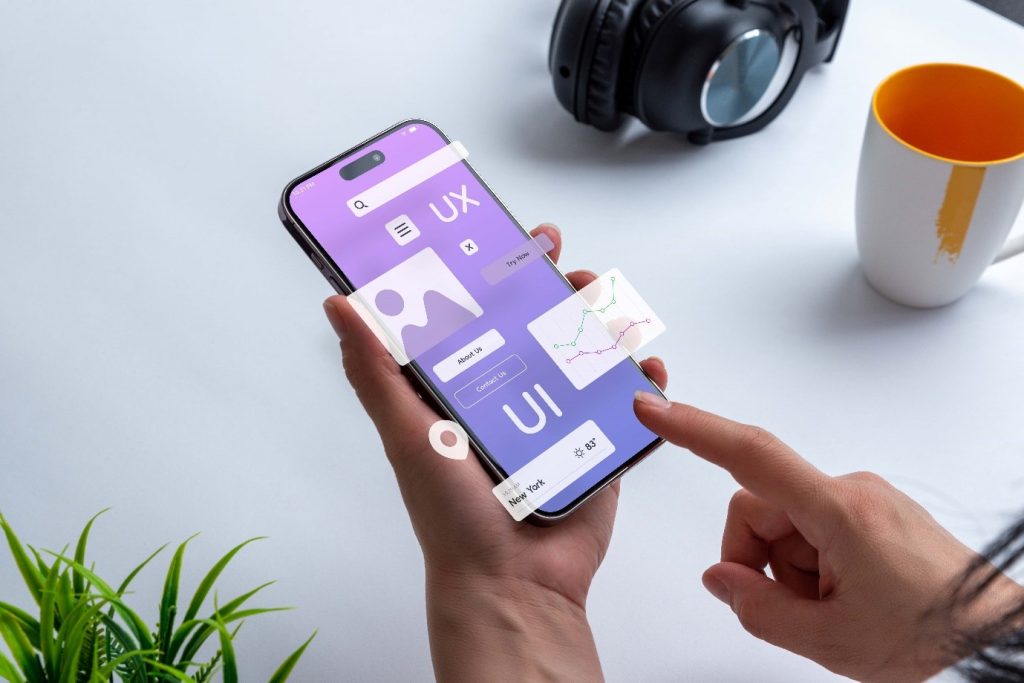UX in App Development! User Experience (UX) stands as a linchpin for success in the ever-evolving landscape of mobile applications. As users become more discerning and demanding, the significance of crafting a seamless, intuitive, and enjoyable experience cannot be overstated. This blog explores the profound impact of UX in app development, delving into its definition, components, and how it shapes user engagement.
Influence of UX in App Development
Definition of UX (User Experience)
At its core, User Experience encompasses the overall interaction a user has with a product, in this context, a mobile application. It goes beyond mere aesthetics and involves how users feel, perceive, and navigate through the app. It is a multidimensional concept that includes elements such as usability, accessibility, and the emotional response elicited by the app. Hence, UX in app development is very important.
The Importance of UX in App Development
The success of an app is inherently tied to its user experience. A well-designed app with great UX not only attracts users but keeps them engaged, fostering satisfaction and loyalty. In an oversaturated market, where users have numerous alternatives, delivering a positive and memorable experience is a differentiator.
Components of UX in App Development
- User Interface Design (UI): The visual elements of the app, including layout, colour schemes, and interactive components, contribute to the first impression users form. An aesthetically pleasing and user-friendly UI sets the stage for a positive experience.
- Information Architecture (IA): How information is organized and presented influences the app’s navigability. A clear and intuitive IA ensures that users can easily find what they are looking for, reducing frustration.
- Interaction Design (ID): This involves designing the interactions between users and the app, ensuring that every touchpoint is smooth and logical. Intuitive gestures, responsive feedback, and seamless transitions contribute to a delightful ID.
- Accessibility and Usability: A truly inclusive app caters to users of all abilities. Prioritizing accessibility ensures that the app is usable by everyone, regardless of disabilities, contributing to a broader user base.
- User Scenarios and Personas: Understanding the target audience through user personas helps in tailoring the app to meet specific needs and preferences. Creating user scenarios enables developers to anticipate user actions and design accordingly.
How UX in App Development Impacts User Engagement
- The Role of UX in User Satisfaction: A positive user experience directly correlates with user satisfaction. When users find an app easy to use, visually appealing, and aligned with their needs, satisfaction levels soar.
- How UX Influences User Retention: Retaining users is a critical metric for app success. An enjoyable UX contributes to user loyalty, reducing churn rates. Regular updates and improvements based on user feedback further enhance retention.
- UX’s Effect on the App’s Virality: Users are more likely to recommend and share an app that provides an exceptional experience. Positive word-of-mouth and app store reviews contribute to increased visibility and downloads.

Measuring the Quality of UX in App Development
- Key UX Metrics: Metrics such as user satisfaction scores, time spent on the app, and conversion rates provide quantifiable insights into the quality of the user experience.
- Importance of User Feedback: Actively seeking and incorporating user feedback is crucial for refining and enhancing the app’s UX. Users often provide valuable insights that can guide improvements.
- Continuous Improvement through A/B Testing and Usage Data Analysis: A/B testing allows developers to experiment with different design elements and features, optimizing the app based on user preferences. Analyzing usage data provides valuable insights into user behaviour and preferences.
Best Practices for UX Design in App Development
- Simplifying Complex Processes: Streamlining complex tasks and minimizing the number of steps required for users to achieve their goals enhances the overall experience.
- Designing with User Personas in Mind: Tailoring the app to the needs, preferences, and behaviours of specific user personas ensures a more targeted and personalized experience.
- Striving for a Consistent Experience: Consistency in design elements, language, and interactions across the app creates a cohesive and predictable experience for users.
- Ensuring Accessibility for All Users: Adhering to accessibility standards ensures that the app is inclusive and can be enjoyed by users with diverse abilities.
Notable Examples of Great UX in App Development
- Uber: The simplicity of the app’s interface, intuitive navigation, and real-time updates contribute to a seamless user experience.
- Instagram: The app’s clean and visually appealing design, coupled with straightforward navigation, has played a pivotal role in its widespread adoption.
Conclusion
In conclusion, the impact of User Experience on app development cannot be overstated. From the initial impression created by the UI to the ongoing engagement facilitated by thoughtful design, UX is a driving force behind app success. By adopting best practices, actively seeking user feedback, and continuously refining based on data-driven insights, developers can create apps that not only meet user needs but exceed expectations. As the app landscape continues to evolve, a user-centric approach remains the key to creating lasting and impactful experiences.











